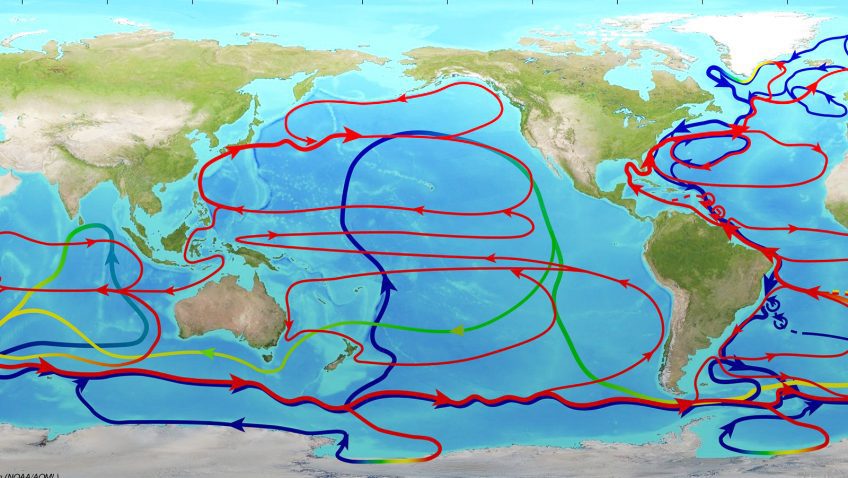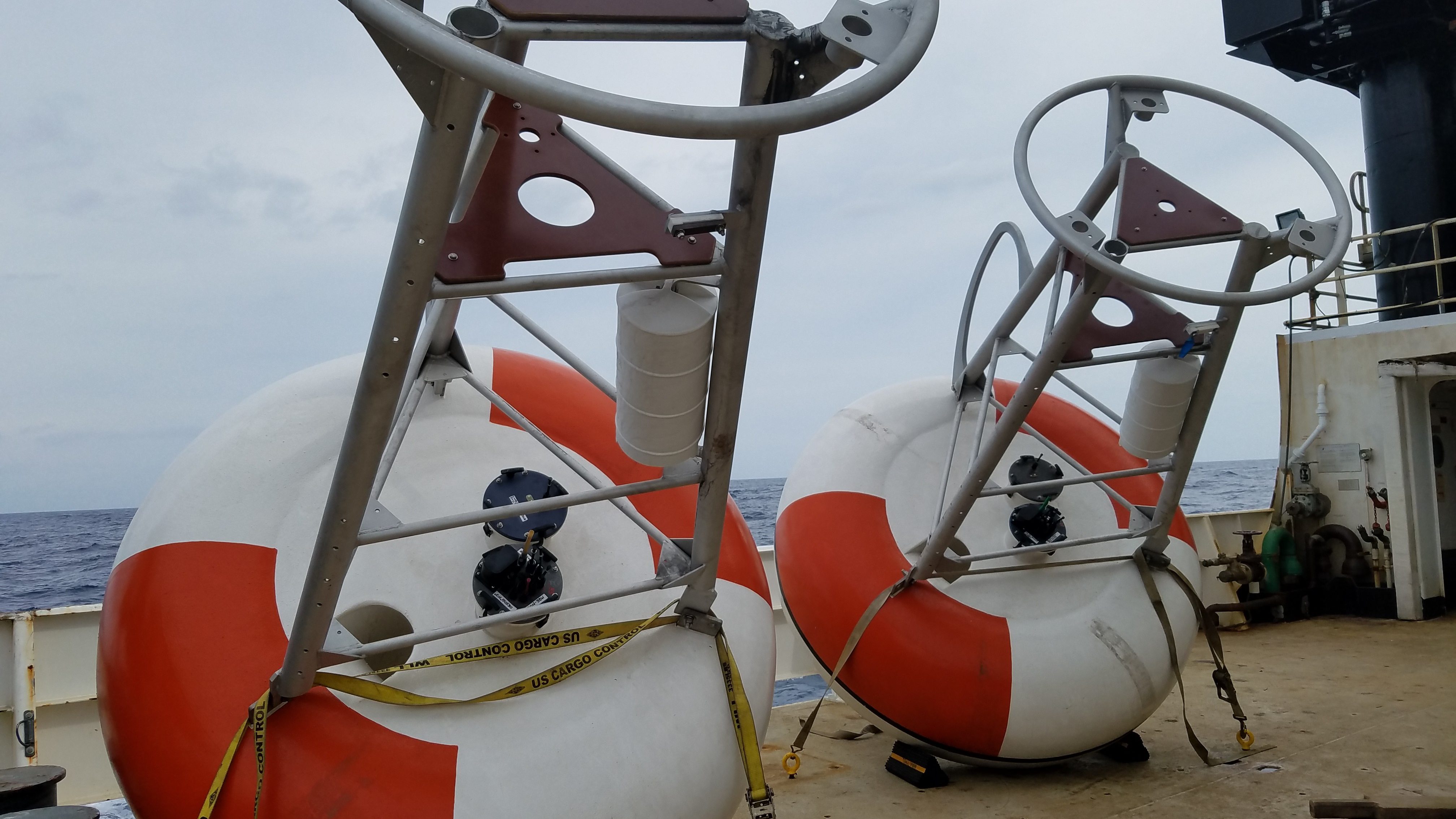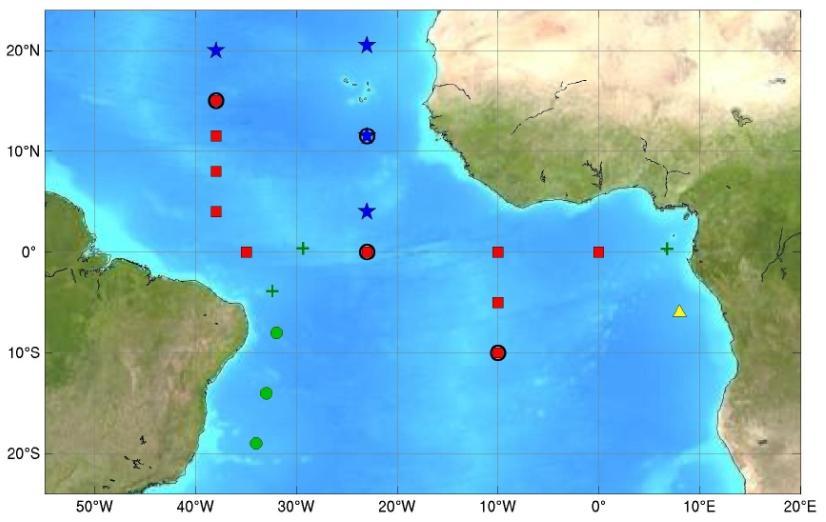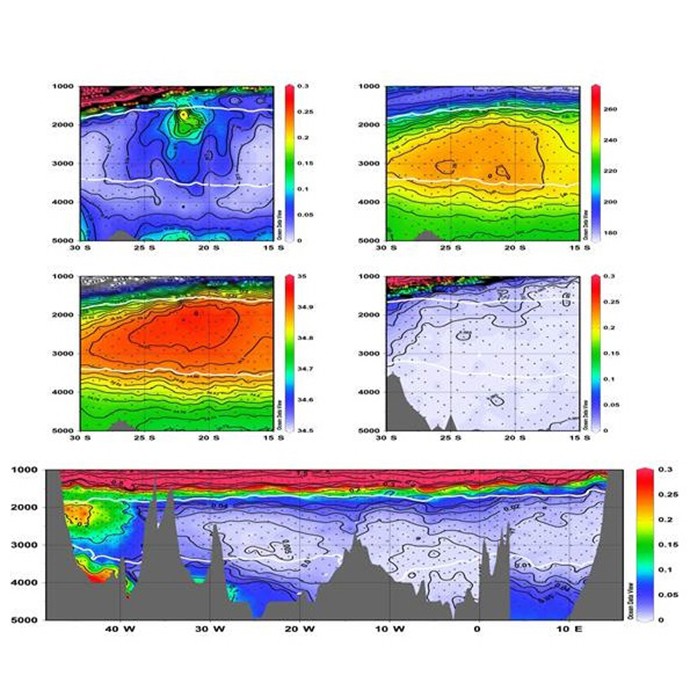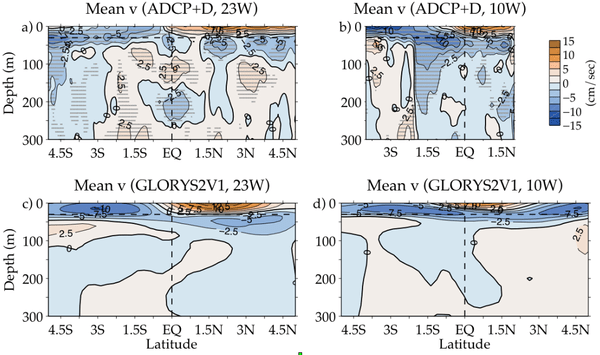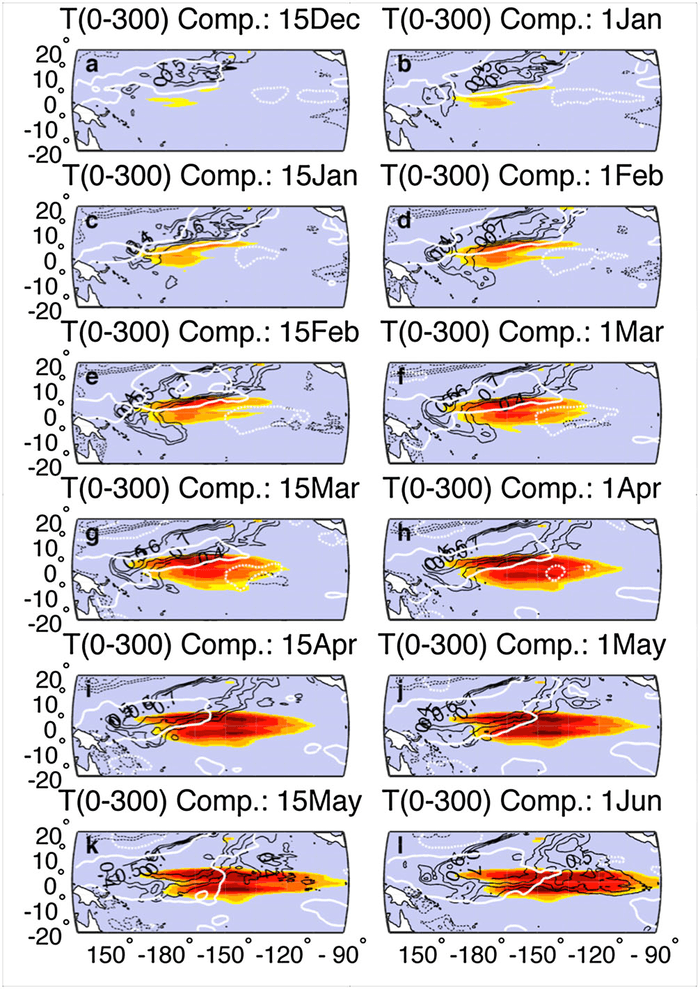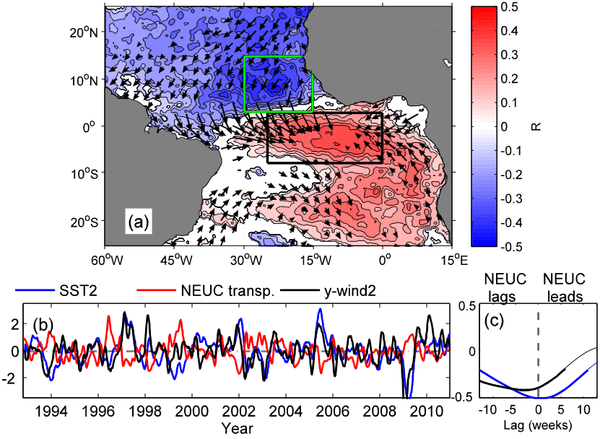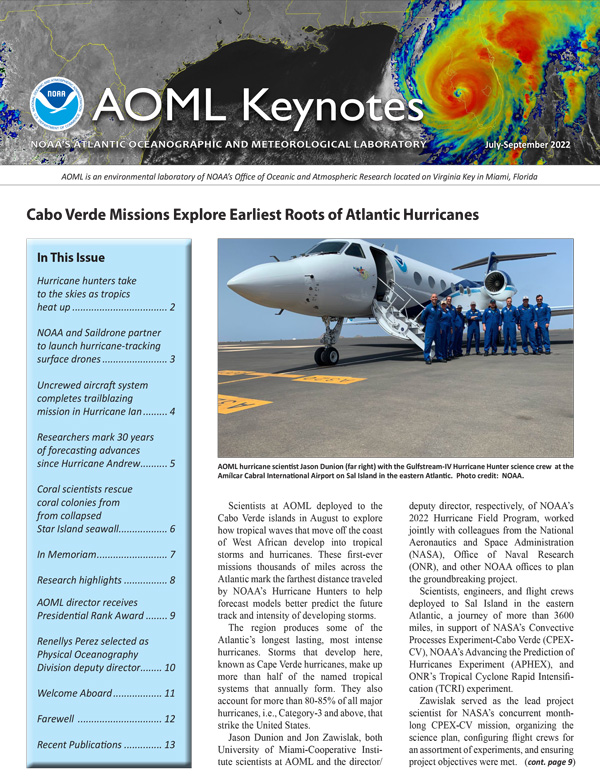First-ever Daily Time Series Reveals the Strength of the Deep Ocean Circulation in the South Atlantic
In a recent study published in the journal Science Advances, oceanographers at AOML and the Cooperative Institute for Marine and Atmospheric Studies for the first time describe the daily variability of the circulation of key deep currents in the South Atlantic Ocean that are linked to climate and weather. The study found that the circulation patterns in the upper and deeper layers of the South Atlantic often vary independently of each other, an important new result about the broader Meridional Overturning Circulation (MOC) in the Atlantic.
